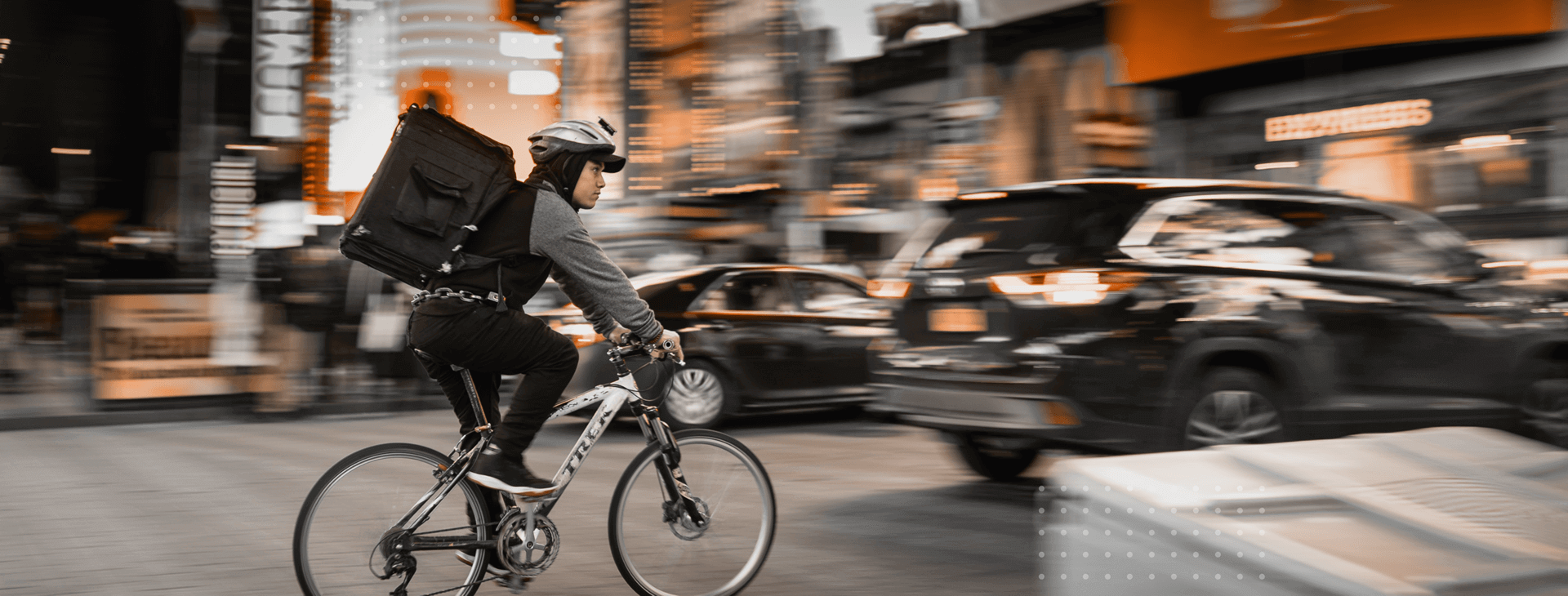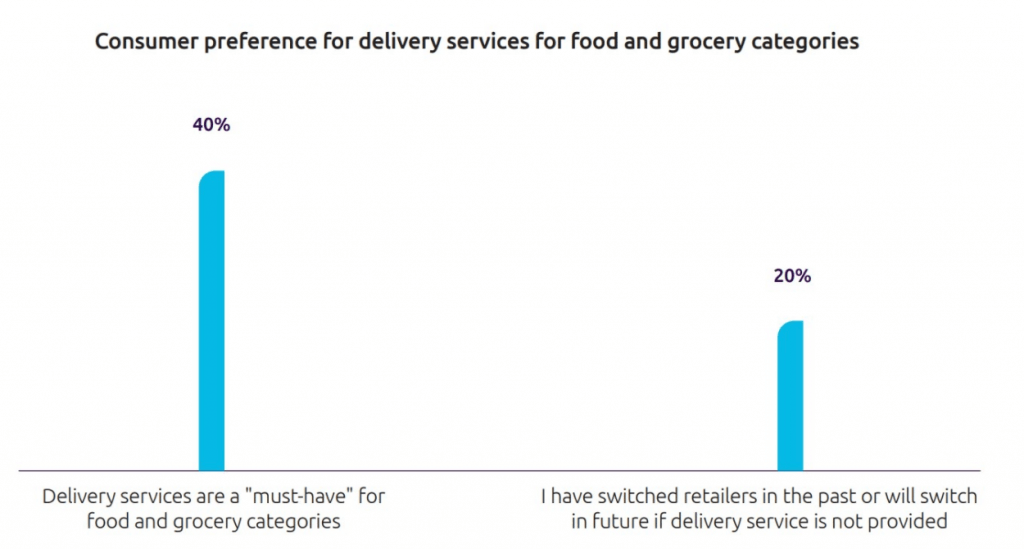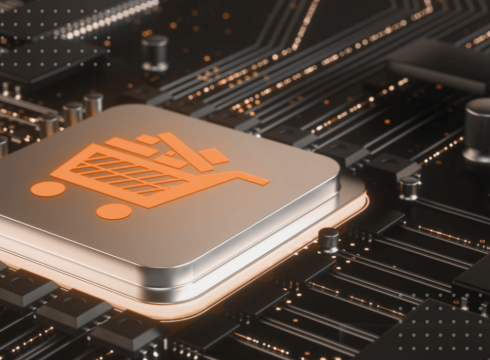The Advantages of Multi-Brand Partnerships in Express Delivery Services

Just when the industry was on the verge of adopting the online approach in commerce, a new trend has boomed, and it’s coming like a tsunami! Yes, we are talking about express delivery services and grocery delivery.
- What is an express delivery service, exactly?
- The UK: The hotspot of express grocery delivery revolution in Europe
- The super-fast evolution of super-fast FMCG delivery
- The impact of multi-brand collaborations in express e-commerce
- The solution to the warehouse problem in express delivery
- A more colourful catalogue lures more people
- Broader customer reach with less budget
- The new trend: 24/7 grocery delivery
- Here is what you get with our last-mile e-commerce platform
What is an express delivery service, exactly?
Since it is a fairly new and variable concept, you may ask “what is express delivery?” Only a couple of years ago, express delivery meant super-fast logistics. Today, it’s the hot topic and the future of the FMCG industry. In short, express delivery, rapid delivery, or on-demand delivery is a way of shopping experience that lets the customer order groceries from a mobile device and have them delivered to their doorstep within minutes. And the faster the experience is, the more successful it becomes.
Offering customers under-two-hour delivery options apparently made a grander impact than the experts had anticipated. The whole industry had been expecting a shift towards faster delivery models, but the pandemic accelerated everything at an exciting pace, and today, even under-two-hour delivery models seem too slow to compete, considering the immense growth of under-10-minutes grocery delivery services.
Although the concept of express delivery has been around for many years in Europe with service providers like Uber Eats and Glovo, more unified services like Gorillaz, Getir, and Dija are dominating the market. We have been seeing a rapid transformation in the UK’s express delivery scene for almost a year.
The UK: The hotspot of express grocery delivery revolution in Europe
2021 came with many things, but for the UK, the first days of 2021 were the beginning of a shopping revolution, particularly in the grocery category. Start-ups that focus on under-20-minutes grocery delivery like Getir, Dija, and Weezy all launched or accelerated their operations in London, and with investment after investment, they expanded their territories. Three months after the express delivery boom in the country, online grocery sales have more than doubled, and last week, Getir announced that it reached 1 million orders in the UK in only six months. Today, the new cool kids of FMCG are expanding to European countries one by one.
Read more about the on-demand grocery delivery revolution in the UK on our past blog.
The super-fast evolution of super-fast FMCG delivery
Even before the pandemic, consumers had made bold moves like switching their grocers with the consideration of their delivery services, and expectedly, the faster the service was, the more preferred they were. Capgemini’s late 2018 research gives us valuable data on consumer behaviours on online delivery services. In short, people want fast grocery delivery, and they want it faster every day.
 Source: Capgemini Research Institute
Source: Capgemini Research Institute
The pandemic surely accelerated the grocery delivery revolution, but looking at the growing expansions of grocery delivery services in Europe, we can surely say that the post-COVID-19 world will be more dependent on fast delivery services. In order to compete, various businesses in the FMCG arena are finding new ways to adapt to the new age of grocery shopping and stick around, and one of the most useful ways to join the express grocery delivery craze seems to be collaborations.
The impact of multi-brand collaborations in express e-commerce
For now, the rulers of the under-two-hours delivery business model may be the fastly-growing start-ups, but FMCG giants are also working hard to take a bigger part in the express delivery arena. On the other hand, there are businesses that fall in between the giants and the newcomers, which are facing the biggest challenges to stick around in a loop of lockdowns and new normals, and the window is getting closer and closer before it’s too late to embrace the new ways of shopping. We’ve seen the impact of collaborations between brands from different categories on the retail front, and since history repeats itself, it’s the best solution for retailers that are aiming for express delivery. For example, Tonal’s partnership with Nordstrom is one of the most profitable retail partnerships that the industry has seen, which is the most suitable way to grow for medium-sized retailers according to experts. Yes, the partnership model is good for growth, but there is much more to it if we’re talking about the express delivery service model.
The solution to the warehouse problem in express delivery
One of the biggest challenges for businesses that are new to express delivery is building a functioning warehouse web. In order to offer a super-fast delivery, brands are obliged to have warehouses in almost every neighbourhood, which is nearly impossible to achieve for many industries, especially if we are talking about medium-sized businesses. While grocery stores and some lucky retailers painlessly manage to cope with the warehouse problem thanks to their already operational stores, start-ups, niche industries, and small companies need to think outside the box. Route management is, of course, a must for companies that aim to achieve great success in express delivery.
Considering speed to be the most essential part of express delivery, integrating a functioning route management software into the system is a must.
Another great solution for medium-sized businesses is building partnerships for warehouses and hubs. Of course, collaborating with a business in another industry that is also getting into the last-mile experience may be a better choice for some, but same-industry partnerships somehow work better. You know; good competition comes with great outcomes. Why not create it with your own hands? Here are some of the top reasons why multi-branded express delivery applications work.
A more colourful catalogue lures more people
Consumer behaviour may vary between different generations, income groups, gender, and locations. But if there is one thing that every customer profile loves, it is a broad product range. Being on the same application with your biggest rival may seem terrifying at the beginning, but there is no doubt that it will lure more people. You can think of it as a modernised version of a shopping mall; similar brands are located in the same place, which is a win-win-win for the mall, the brands, and the customers.
Broader customer reach with less budget
Many brands have only one or two stores in major cities, which makes it nearly impossible for them to get in the last-mile delivery trend. Building warehouses that focus specifically on express delivery is the best solution for this problem, but for many businesses, there are more cons than pros. Plus, warehouses are not the only things that weigh on the budgets of small and medium companies. New stores and warehouses require hiring new employees as well. With collaborations, brands can save more than 50% in logistics, storage, and crew, all while being able to have a broader reach.
The new trend: 24/7 grocery delivery
While it looks excessive to be open for business 24/7, partnerships make it more possible. Especially in the drugstore, grocery, maintenance, and liquor brands have been seeing a rise in customer demand in 24-hour delivery. Again, partnerships seem to be the most reasonable and budget-friendly way while building an express delivery service that works 24/7. Of course, businesses need to take everything into consideration before stepping into risky territory, but then again, the winners of these modern times are big risk-takers. Thankfully, today’s data analysis technology allows companies to get a perfect sense of what their customers need.
In the end, everything comes down to what your customer demands, and testing their demands in pilot locations with strong data analysis tools is more approachable for any business. With readymade and fully customisable platforms like ours, you can begin your express delivery journey without worrying about building a perfectly working application, whether you’re thinking about a collaborative or standalone model; we got it covered with the latest and the most convenient technology.
Here is what you get with our last-mile e-commerce platform
At Ubimecs, we have been working on omnichannel applications and platforms for retailers for more than a decade. This year, we have built the platform of the future: an express e-commerce platform. We have used our vast knowledge in the e-commerce area, adding new and modern features that meet the demands of today’s customers and businesses. Here are the top features of our express e-commerce module.
Data comes first
All of our platforms have tools that can analyse customer behaviour. On our platform’s administration panel, you can get weekly reports that show location, age, gender, and income-based customer profiles and their shopping patterns. With such strong data analysis capabilities, you can command our platform to create personalised offers for each customer group to increase your loyalty and customer satisfaction scores.
Inventory management
Since the whole process happens on our platform, you don’t have to worry about using another service to manage your inventory. Ubimecs Express E-Commerce Platform tracks each store’s and warehouse’s inventory and notifies the right people about what needs to be done. In short, the platform offers a unified experience for both your customers and your brand.
Route management
We mentioned that efficient route planning is the key to express grocery delivery, and our platform includes a fully functioning route planner, so you don’t have to worry about spending extra time and resources on unnecessary routes.
Payment management
Another expertise of our team is money management applications, and while building our e-commerce platforms, we have implemented everything that the modern-age business and customers need. With our platform, you can offer multiple payment options to your shoppers.
To learn more about our express e-commerce platform, visit our Ubimecs Q-Commerce page.
Who are We?
Tmob | Thinks Mobility is a global technology powerhouse, specialized in digitalization and integration solutions, bringing growth and success to businesses and partners with its innovative SaaS, PaaS, and premium solutions since 2009 with Tmob Turkiye (TR) and Tmob United Kingdom (UK) headquarters.
Sources: 1 1380198893774901250 2 https://twitter.com/getir_UK/status/1428679011434221568 3 Report-Digital-–-Last-Mile-Delivery-Challenge1.pdf (capgemini.com) 4 https://www.forbes.com/sites/blakemorgan/2021/03/02/what-the-tonalnordstrom-partnership-means-for-the-future-of-experiential-retail/?sh=4dbaf03d4eb7#:~:text=Tonal%2C%20maker%20of%20a%20wall,future%20of%20at%2Dhome%20fitness 5 https://www.researchgate.net/publication/339910238_Collaboration_in_the_last_mile_evidence_from_grocery_deliveries 6 Express - Ubimecs
- What is an express delivery service, exactly?
- The UK: The hotspot of express grocery delivery revolution in Europe
- The super-fast evolution of super-fast FMCG delivery
- The impact of multi-brand collaborations in express e-commerce
- The solution to the warehouse problem in express delivery
- A more colourful catalogue lures more people
- Broader customer reach with less budget
- The new trend: 24/7 grocery delivery
- Here is what you get with our last-mile e-commerce platform




